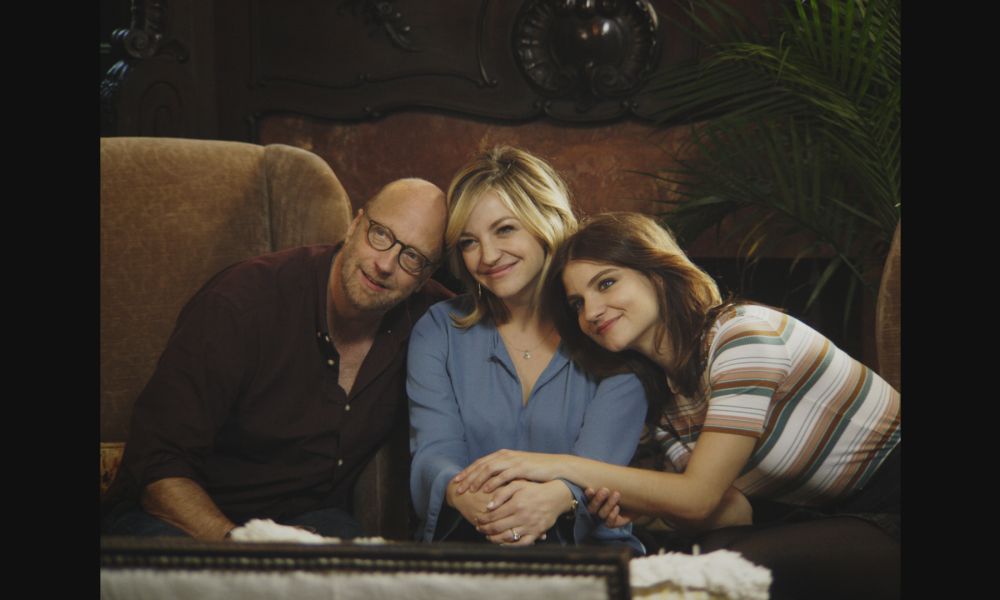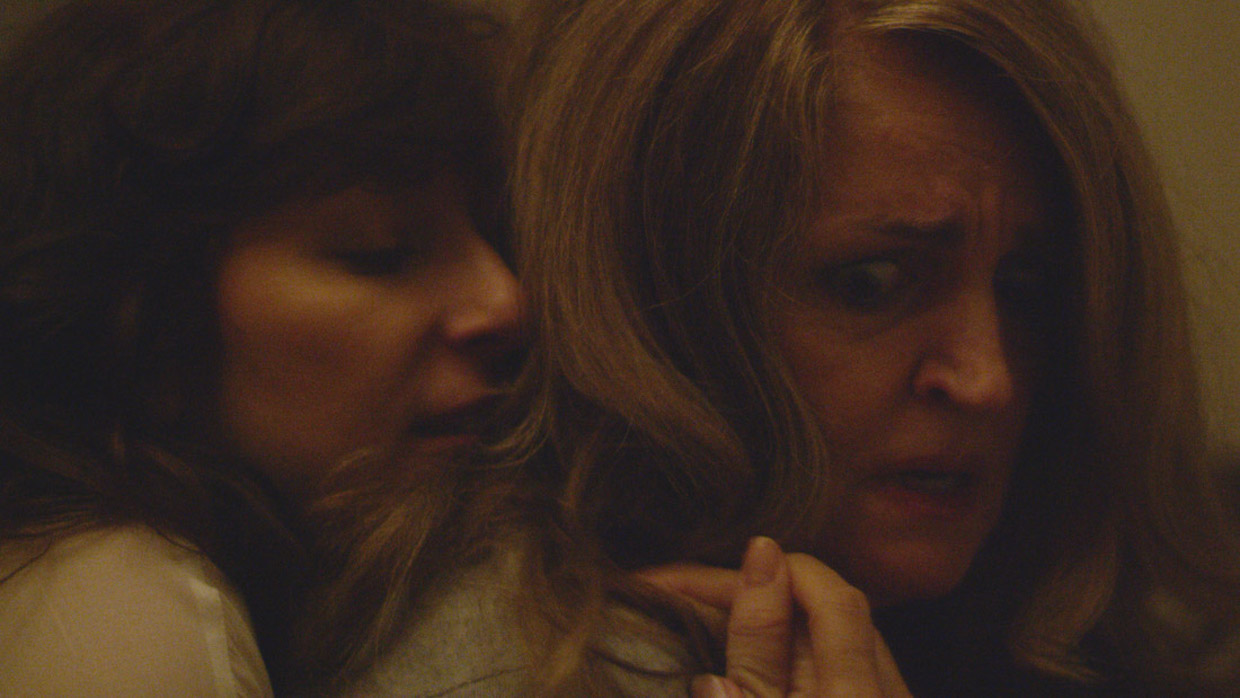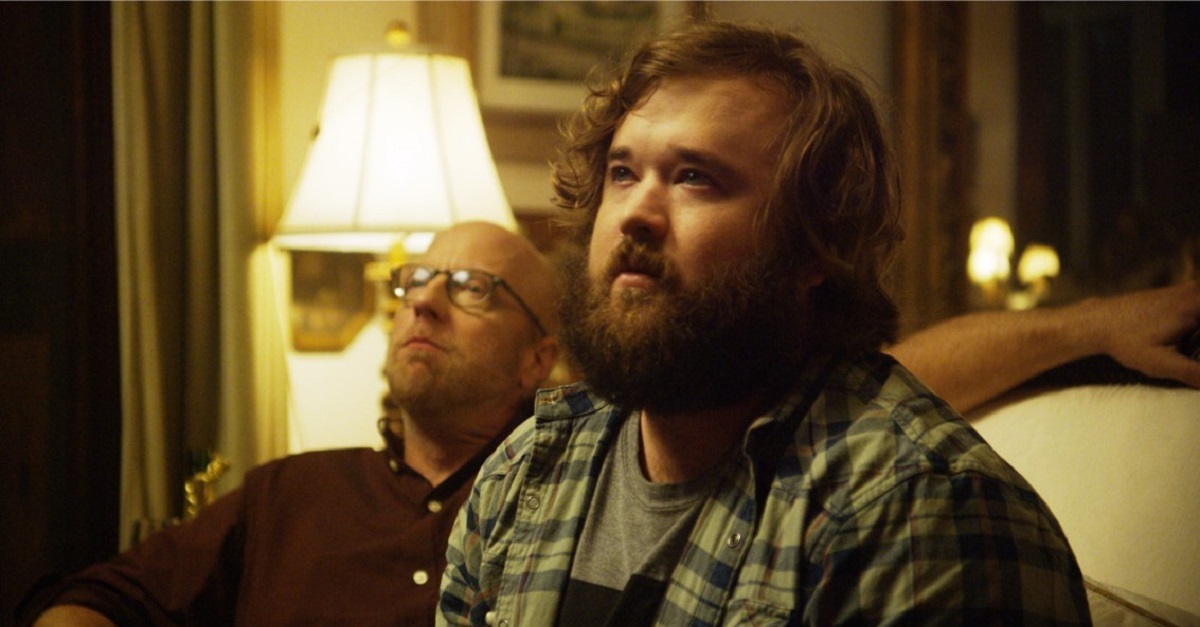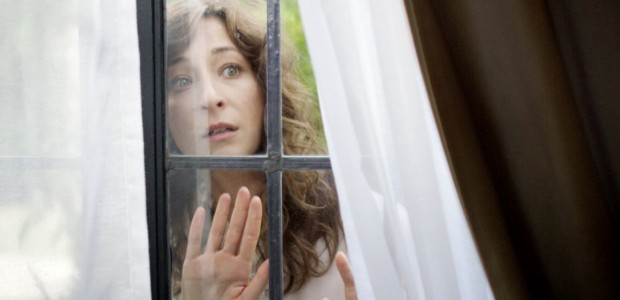
Let’s just get this out of the way up front: CABIN BOY is a psychotronic comedy classic, but it’s not surprising that Chris Elliott’s utterly bizarre starring vehicle failed to launch him to A-list leading man status. Ever since his work on Late Night With David Letterman in the 80s, Elliott’s very particular brand of humor has been a tough sell to the public at large. He has done a ton of TV–where he really shines–but mostly when he shows up in feature films he’s a weird supporting character or memorably strange cameo. One of the many lovely things about CLARA’S GHOST, the debut feature from Elliott’s writer/director daughter Bridey, is that it both gives him a leading role and allows him to explore some darker territory in his offbeat on-screen persona. Another is that it brings together the whole immediate Elliott family to star as (what one hopes are) bleak mirror-world versions of themselves.

Clara Reynolds (Paula Niedert Elliott) is going through a tough time: her TV star husband Ted (Chris Elliott) has hit a rough patch in his career, her daughter Julie (Abby Elliott) is getting married in nine weeks and freaking out about it, and her other daughter Riley (Bridey Elliott) is struggling to find work as an actor despite her and Julie’s history as stars of a hugely successful sitcom in their teens. Julie and Riley are coming home to visit for the annual birthday party thrown for the family dog Ollie, a ritual that includes the sisters’ longtime friend and pot dealer Joe (Haley Joel Osment). On top of all the other stressors in Clara’s life, she has recently started seeing a woman in a plain white gown (Isidora Goreshter) who seems to be communicating with her telepathically and may be the ghost of someone in the family who first built the Reynolds home back in the 1800s. As the dog’s birthday party drags on into the night, Clara’s fraying nerves threaten to give out completely. Will somebody figure out something’s wrong with her in time, or will this be Ollie’s worst birthday ever?

CLARA’S GHOST digs in to some seriously uncomfortable territory, both in its family dynamics and in how those dynamics are influenced by its characters’ careers in show business. Ted is a bitter drunk, capable of verbally cutting down anyone unfortunate enough to irk him with savage precision but more prone to obnoxiously blunt mockery. The sisters are both painfully self-absorbed, and Julie’s impending wedding is the source of additional stress on the family as she’s marrying the producer of the television series Ted is currently working on. Clara is desperate for a real human connection of any kind; as the film opens, she’s at the local police department trying to report a missing shoe that fell out of her car to a very confused young cop. The only person who seems to be relatively happy and “normal” is Joe, who cheerfully goes along with whatever weirdness the family throws at him until things start getting really uncomfortable. As an ensemble, the family plays off each other brilliantly and effortlessly–despite the fact that they’re often mercilessly sniping at each other, they’re funny enough to keep the proceedings from going off the rails too much into sheer unpleasantness.
The intimacy of the family experience is enhanced by Markus Mentzer’s warm 70s-inspired cinematography, and the discomfort amplified by the fact that it’s shot in 4:3 aspect ratio. On some level, it’s clear that CLARA’S GHOST is a nod to 70s “psychotic women” films that chart the deterioration of a character’s fragile mental state. While films like Robert Altman’s IMAGES tended to be deeply unsettling, debut feature writer/director Bridey Elliott grafts the style onto a loose, improvisational comedy that has many moments of unexpected hilarity. That’s not to say that this film doesn’t have its share of darkness, both in its observations of a family barely keeping it together and in its genre elements, but it’s exceedingly rare for such a film to have much in the way of humor. As bleak as it gets, CLARA’S GHOST has plenty of laugh-out-loud moments of inventive goofiness that help convey the emotional foundation of its lead family–they may have their differences, jealousies, and hurt, but when it counts most they really care for each other and they’ve used their shared knack for comedy as a way to relate when other methods fail.

It’s that genuine connection that really saves CLARA’S GHOST from slipping too far into misery, although by the time the end credits roll it’s hardly certain what the future might hold for the family and for Clara in particular. Bridey Elliott has crafted a fantastic debut feature that has quite a few major surprises, not least of which is the way she tweaks her father’s image and comic persona into something both a little sinister and ultimately endearing. Elliott has rarely had the opportunity to display both his comedic and dramatic chops in the same film. While Paula has not spent much time in front of the camera, she gives a great lead performance that one would expect from a seasoned screen vet. Their surprising performances are just a couple of the things that makes CLARA’S GHOST such a unique and entertaining hybrid of two disparate styles of film that mesh together shockingly well.
–Jason Coffman (@rabbitroom)
- [CINEPOCALYPSE 2017] FIVE FILMS YOU CAN’T MISS AT CINEPOCALYPSE! - October 31, 2017
- Hop into Jason’s Ride for a Look at the Wild World of Vansploitation! - August 11, 2014
Tags: Abby Elliott, Bridey Elliott, Cabin Boy, Chis Elliott, Connecticut, family comedy, Get a Life, Haley Joel Osment, Horror Comedy, Paula Niedert Elliott, psychotic women




No Comments